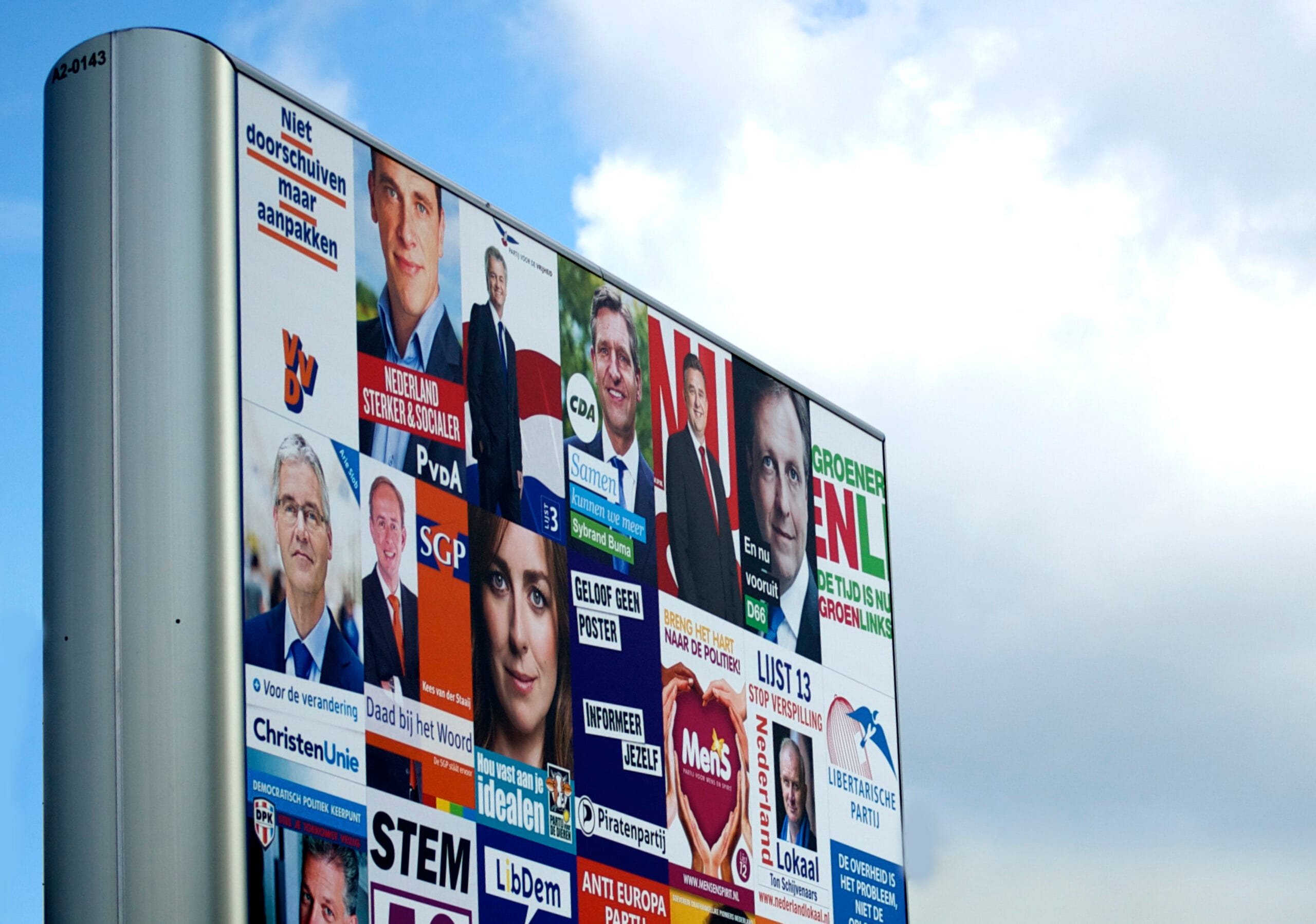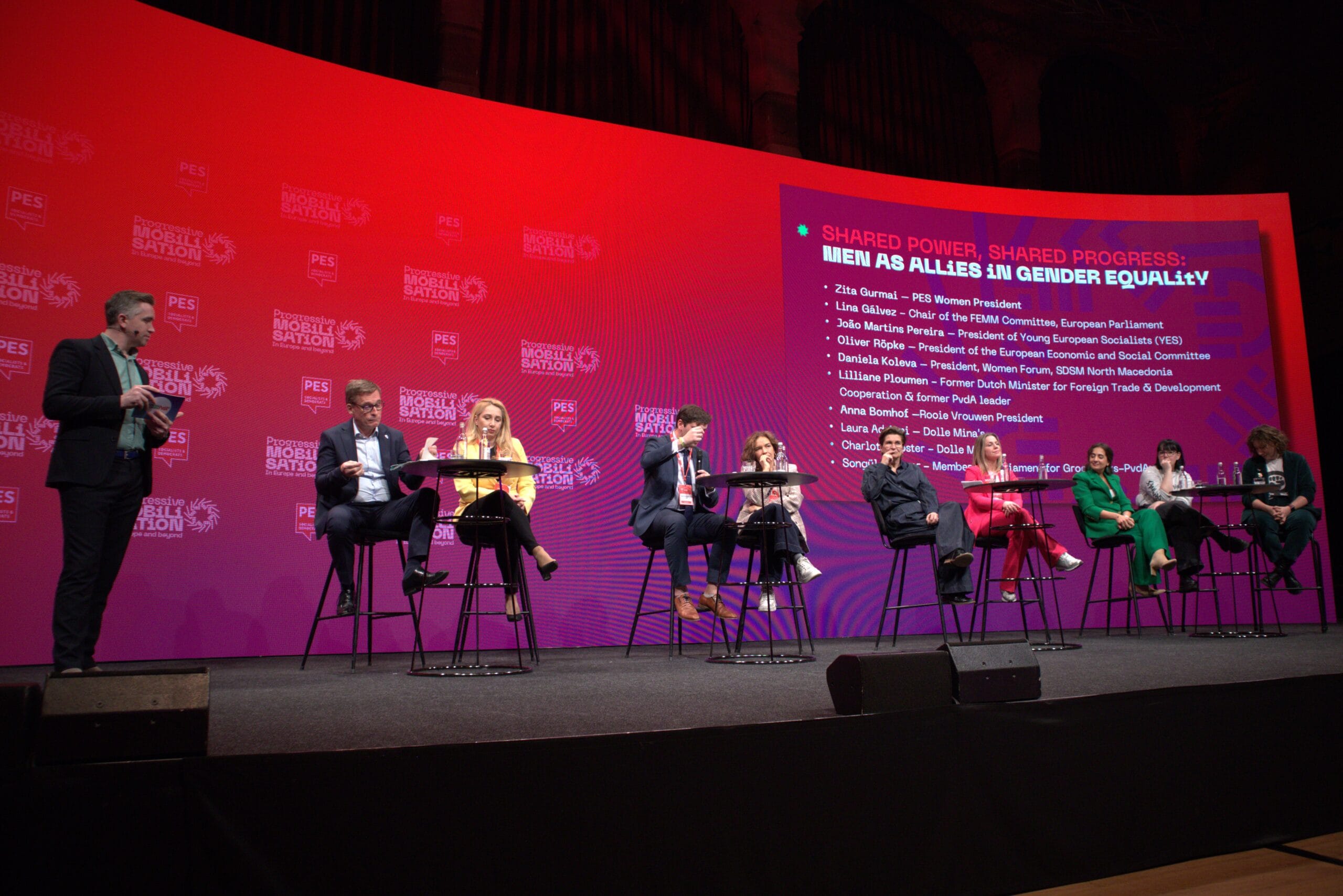Photo: Ministers Wopke Hoekstra and Liesje Schreinemacher, Wikimedia Commons
In 2014, Sweden became the first country in the world to implement feminist foreign policy (FBB). Several countries followed, and on 13 May 2022, Minister Wopke Hoekstra (CDA) and Minister Liesje Schreinemacher (VVD) also dropped, know that the Ministry of Foreign Affairs started explicitly engaging with FBB. A year later announced the ministry indicated that the policy has been put into practice, among other things, through highlighting sexual violence as a war crime during the 'Ukraine Accountability Conference' and through consultations for staff to help think about FBB. Although this has taken substantial steps towards more gender-equal foreign policy, it has also shown that the end goal is still far off. This article therefore describes four areas in which the current Dutch FBB can and should develop so that it can better realise the ideals it subscribes to.
Intersectionality
The Ministry of Foreign Affairs defines FBB as a policy that stands for "protecting human rights and promoting meaningful participation of women and LGBTQ+ persons in decision-making," and providing the resources needed to do so within local contexts. The Ministry rightly recognises that certain population groups suffer more severely from gender inequality, for example by highlighting the additional burden LGBTQ+ persons bear for this. In addition, it mentions the term 'intersectionality' in a footnote. Nevertheless, a truly intersectional approach is lacking in practice, recognising how different forms of discrimination and marginalisation interact structurally and thus also contribute to gender inequality.
This intersectional approach to feminist policy is more than necessary, as women and members of the LGBTQ+ community are far from being treated equally among themselves. FBB should at all costs avoid presenting women as a homogenous group with similar experiences and perspectives.
For example, women of colour are significantly more affected by sexual violence, negative stigma, and underrepresentation. This is all the more true for women of colour who are part of the LGBTQ+ community.
For this reason, it is important that the oppression of women, which is what FBB wishes to address, is also linked to other forms of oppression, such as racism, transphobia, age discrimination, and validism. Therefore, the Dutch FBB, should adopt an intersectional form of feminism, and when advocating for female representation, should also ask itself which women there really are presented now.
Bottom-up feminism
When this question is asked, it is also important to consider the social positions from which represented women come from.
The Dutch FBB has a strong focus on women in decision-making positions, female entrepreneurship, and financial support. The practice learns that such efforts are especially beneficial for women who are already quite privileged. Thereby, women in decision-making positions can still contribute to institutional oppression of other women, but in a lot less visible way, since high levels of female representation can suggest that 'the problem has already been solved'.
Therefore, FBB's female representation efforts should be adequate for various strata of the population, rather than only those who have sufficient capital to secure a role in decision-making bodies. Using a 'bottom-up' approach, resources are also allocated to local communities and populations that are less heard, such as indigenous groups.
A feminist concept of security and peace
In addition to a feminist concept of intersectionality and representation, there is also much room for improvement for the Dutch FBB regarding the adoption of a feminist concept of security. Indeed, the Ministry of Foreign Affairs does not seem to sufficiently recognise that policy on security is also an important branch of feminist advocacy on international policy.
Indeed, when international politics is about security, it is all too often about protecting the state and its physical borders from interstate violence through maximising military power. Feminist security studies argue instead that in not only the state, but also people, groups and communities can be (in)secure and therefore should be included in conceptions of 'security'. They define this security not only in physical terms, but also in emotional, economic, cultural and environmental terms. By broadening what security means and who is affected by it, they highlight the insecurities of marginalised, underexposed and often female populations. These insecurities range from structural violence, such as sexual and domestic abuse, to ecological insecurity, such as habitat destruction and resource exploitation.
This approach to security also has implications for what the concept of peace well actually means. For feminism in international politics, it means that states, individuals and social groups create a culture of peace that not only excludes war but also eliminates forms of structural violence that limit the individual's potential. While so-called 'negative peace' focuses only on the absence of violence, the feminist concept of 'positive peace' includes the absence of social injustice and structural violence.
Policy coherence
A critical reader may notice that the whole of the above desires - an intersectional approach, equitable representation, as well as adopting a feminist concept of both security and peace - may be somewhat ambitious for just this branch of the Foreign Office. And that is correct because, as I hope a critical reader will also notice: these ideals cannot be realised by Foreign Affairs alone, but must also be complemented by other policy areas. The ways in which foreign policy can be truly feminist are only possible if all policies affecting foreign countries, not just Foreign Affairs, take a feminist approach.
For example, as part of the FBB, Minister Schreinemacher has advocated for "the crucial role of female leadership in climate action and the importance of funding for women-led organisations". It would only have little effect if the Ministry of Foreign Affairs provides financial support for this, while on the other hand the Netherlands continues to exploit resources, making climate action necessary in the first place. Nor will encouraging female representation work wonders, when the majority of women in the global South are still structurally oppressed by the international economic inequality that the Netherlands contributes to, including through supporting multinationals, greenhouse gas emissions, and tax avoidance. A telling example of this is the way the Dutch market contributes to violating women's rights through its contribution to the palm oil industry in the global South.
In addition, the credibility of feminist foreign policy is shaky when domestic policy is sometimes distressingly far from feminist. Consider the Dutch situation around reception of (LGBTQ+) asylum seekers, figures of sexual violence, inequality in unpaid work, and femicide, to name just a few examples.
Introducing feminist foreign policy has been a positive step, but the policy still has a long way to go if it really wants to be credible. This autumn, the State Department is releasing a handbook for fbb. This will require an intersectional, bottom-up and all-encompassing form of feminism, rather than a somewhat watered-down version of it that may have been more palatable to the right-wing twosome that introduced it in 2021. For the future, a systematic effort is needed, ensuring that a feminist approach goes beyond the surface and is actually used integrally, structurally, and equitably. Feminist foreign policy should not be a compromise, but a requirement.




